Matching skills Math Worksheets for Ages 4-7
23 filtered results
-
From - To
Discover our engaging "Matching Skills Math Worksheets for Ages 4-7," specifically designed to make learning fun and effective. Our worksheets help young learners enhance their critical thinking and number sense. Perfect for early grade students, these activities include colorful images and playful themes to motivate kids. Whether matching numbers to sets, shapes, or patterns, children will develop foundational math skills that are vital for future success. Encourage your child's curiosity and confidence in math by exploring these expertly crafted resources from Kids Academy. Boost your child's learning journey today with our educationally rich and interactive matching skills worksheets!
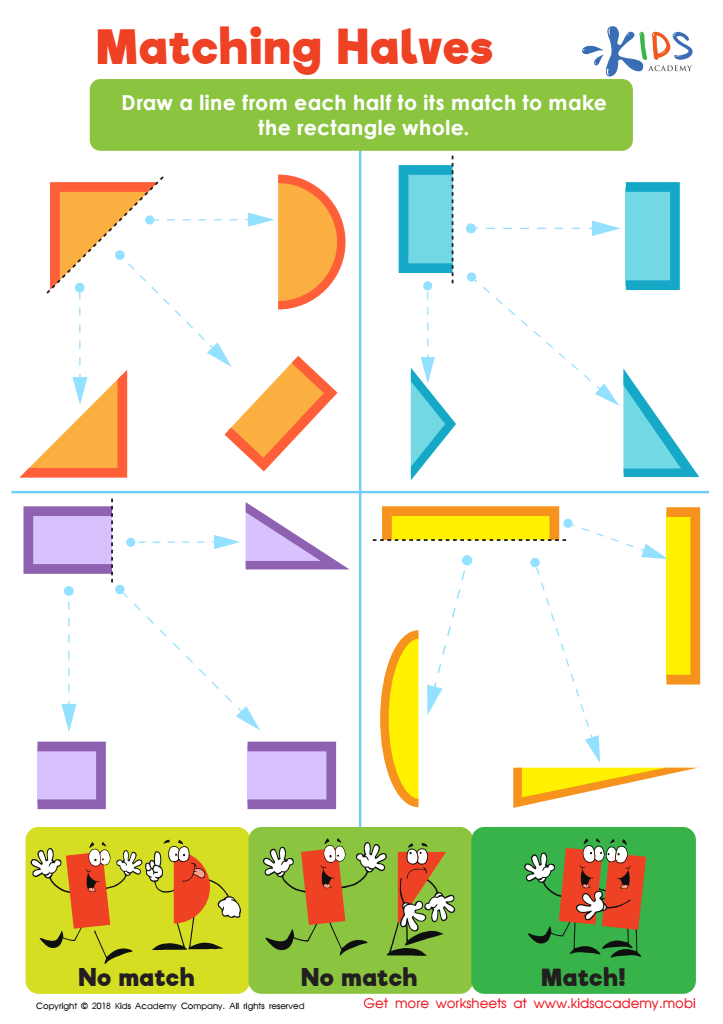

Matching Halves Worksheet
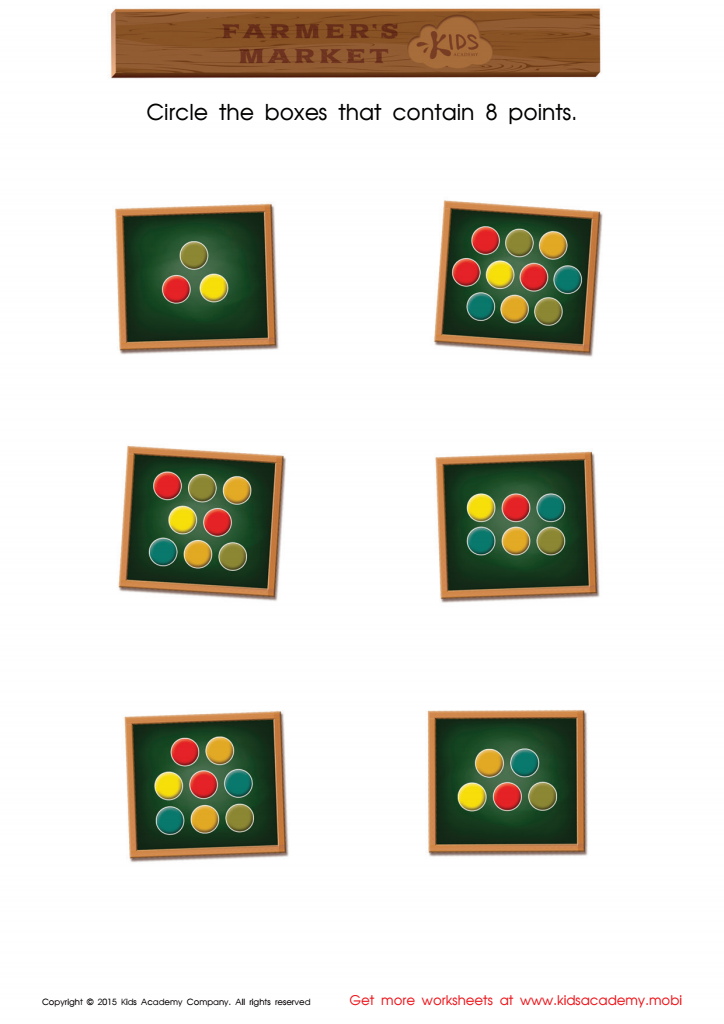

Count and Match Points 8 Math Worksheet
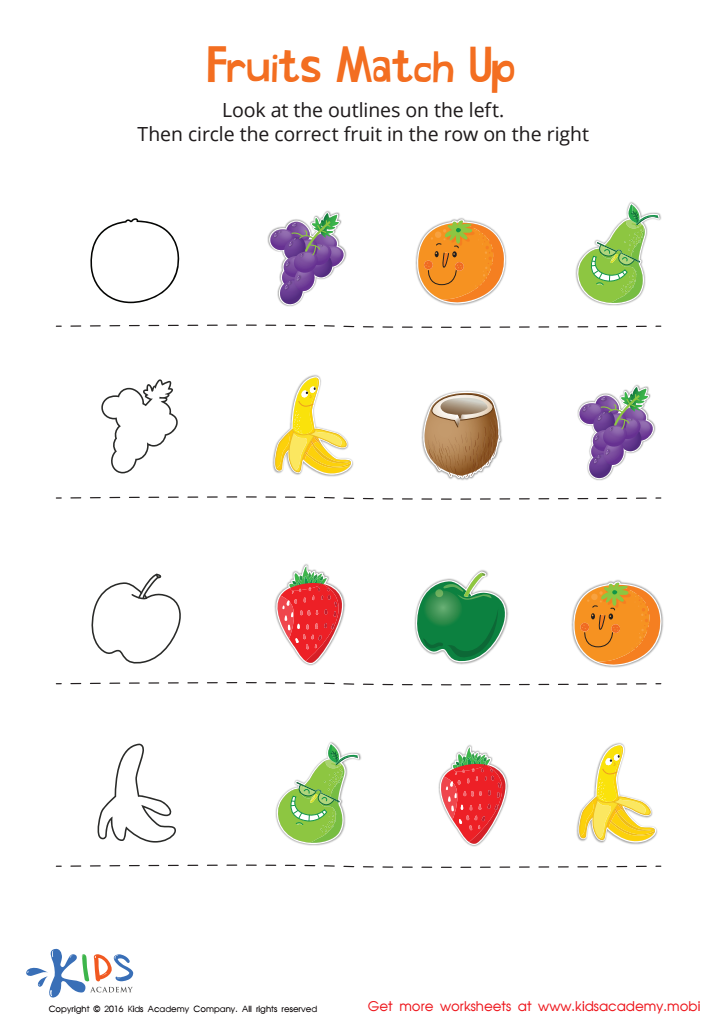

Fruits Match Up Worksheet
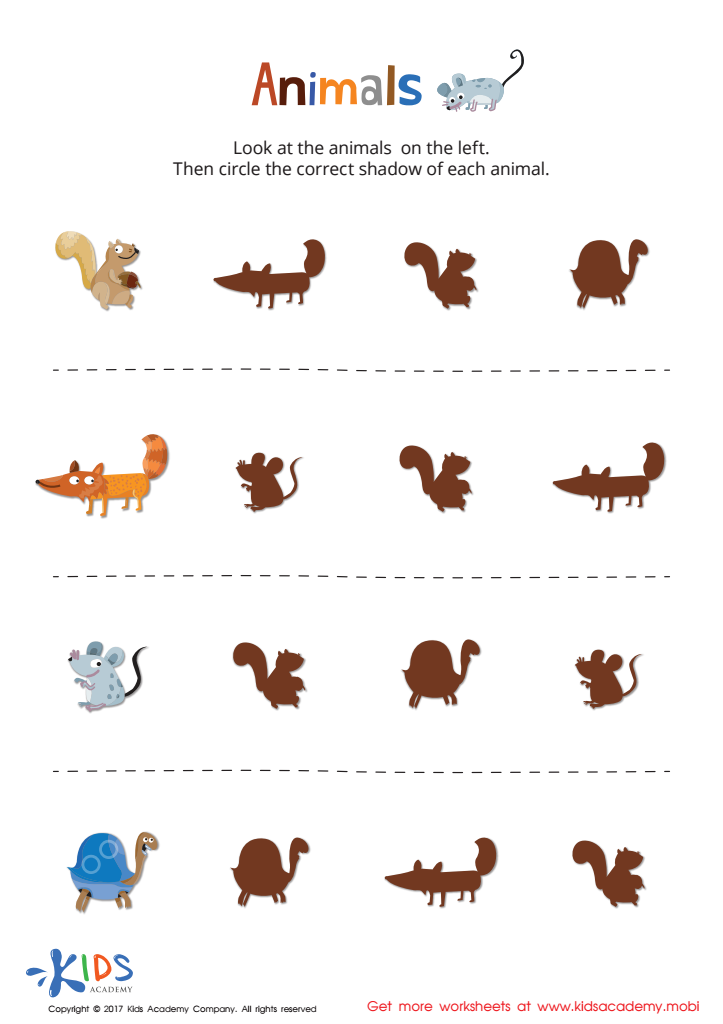

Animal Shadows Sorting Worksheet
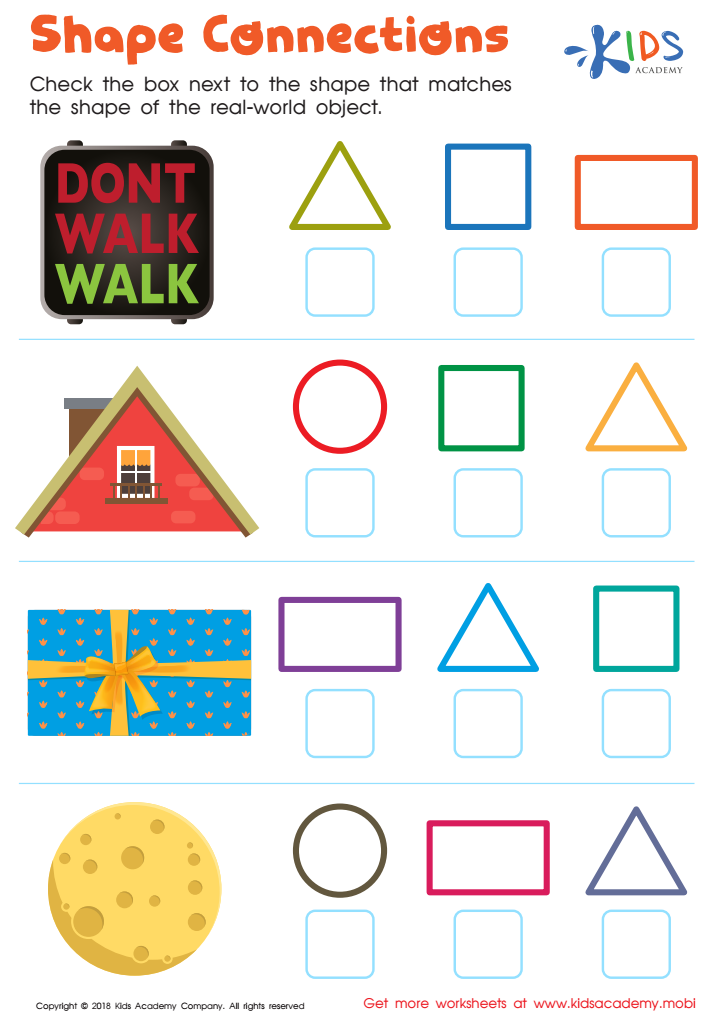

Shape Connections Worksheet
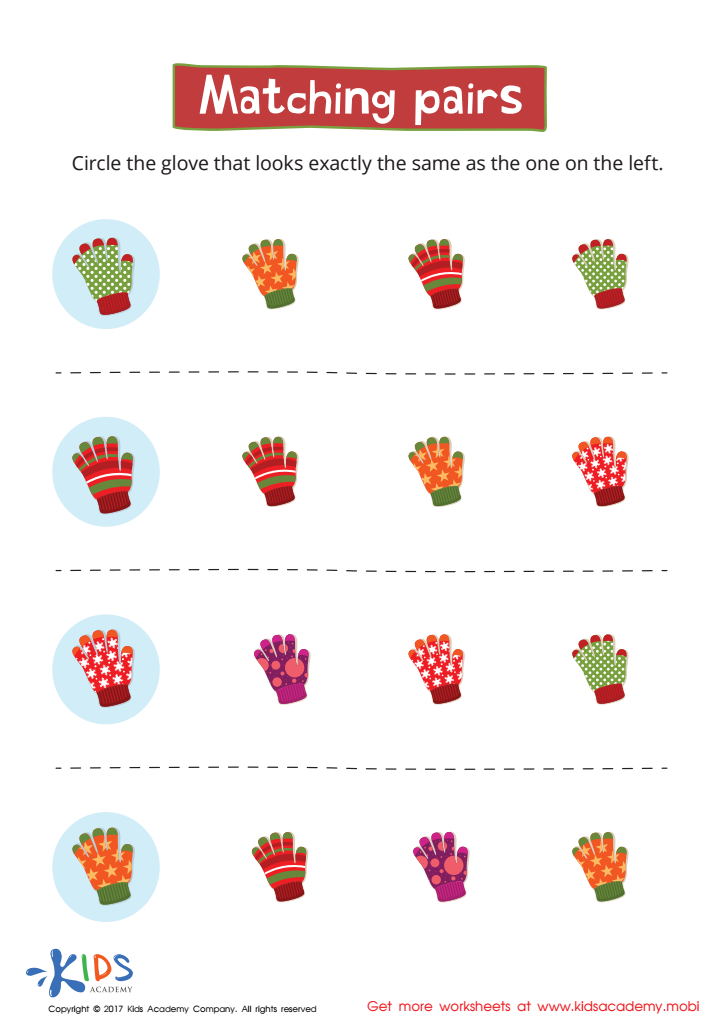

Matching: Matching Pairs Worksheet
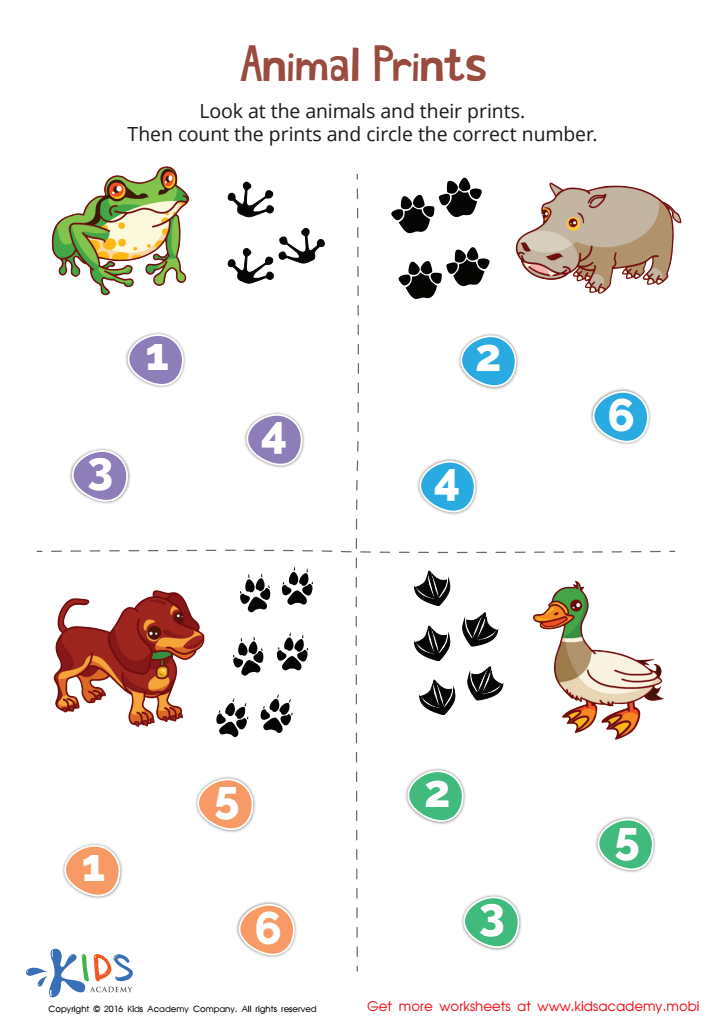

Animal Prints Match-Up Worksheet
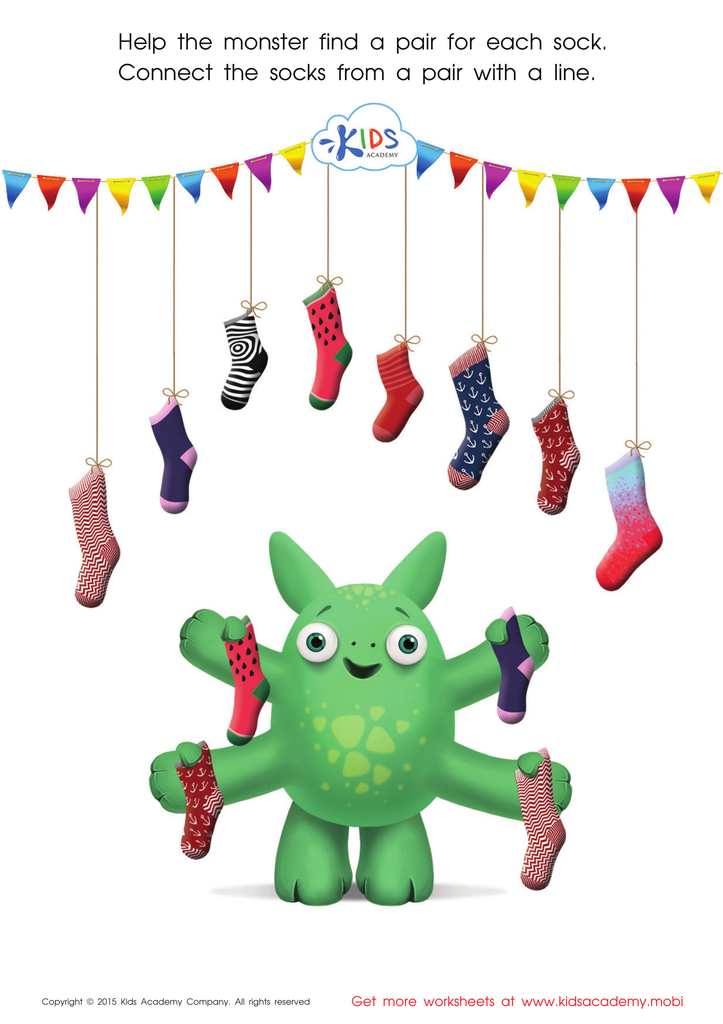

Math Matching Game: Monsterв's Socks Worksheet
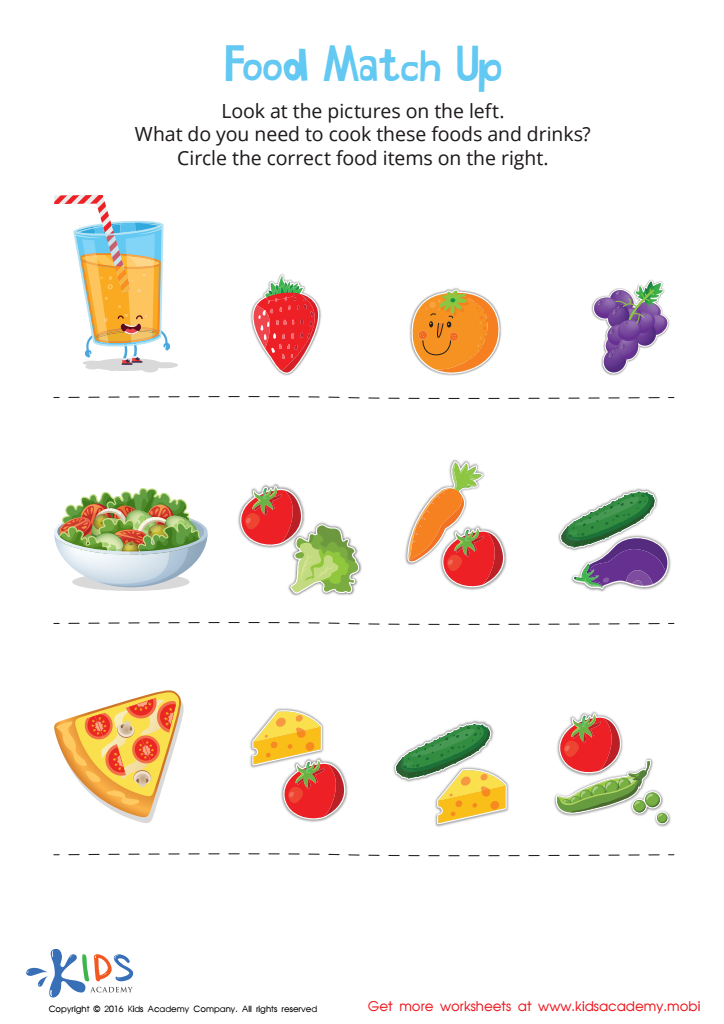

Food Match Up Worksheet
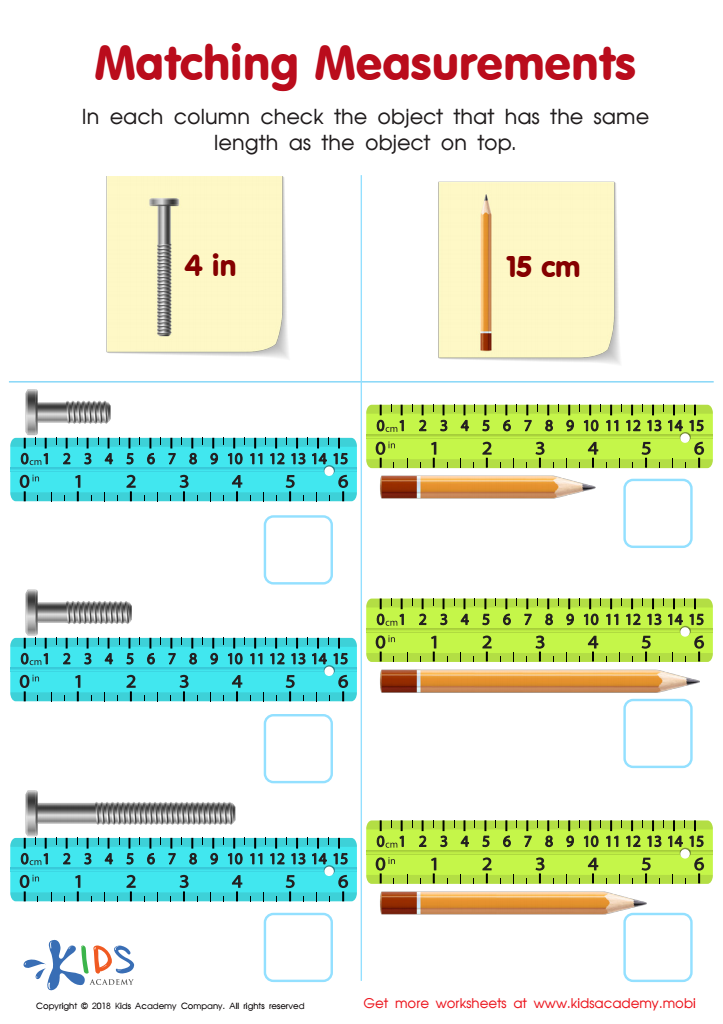

Matching Measurements Worksheet
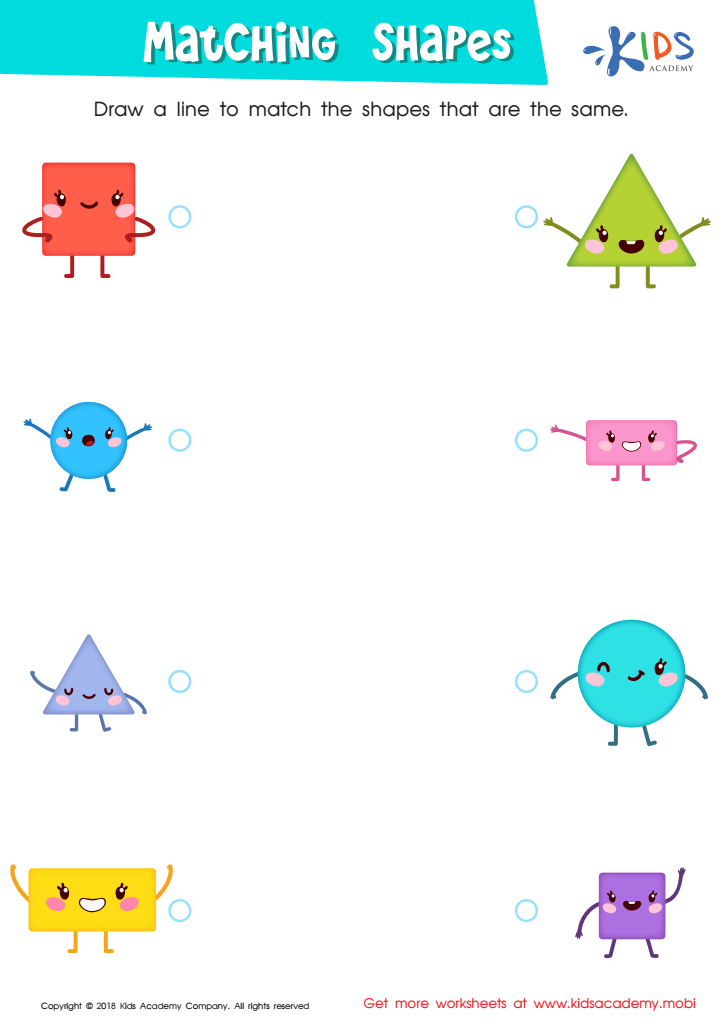

Matching Shapes Worksheet
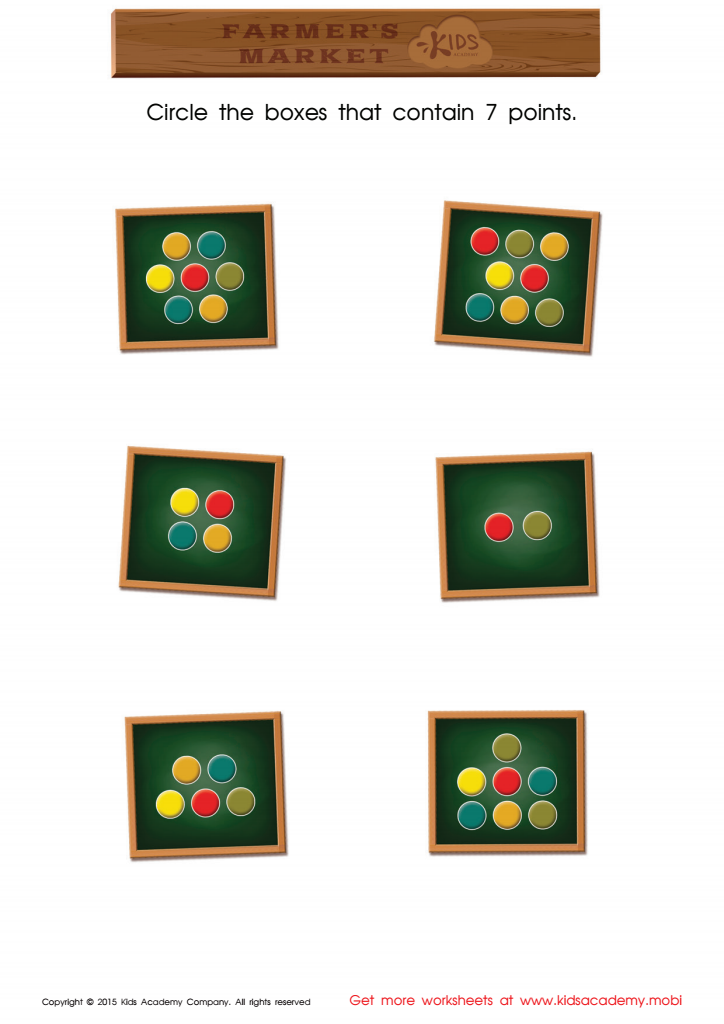

Count and Match Points 7 Math Worksheet
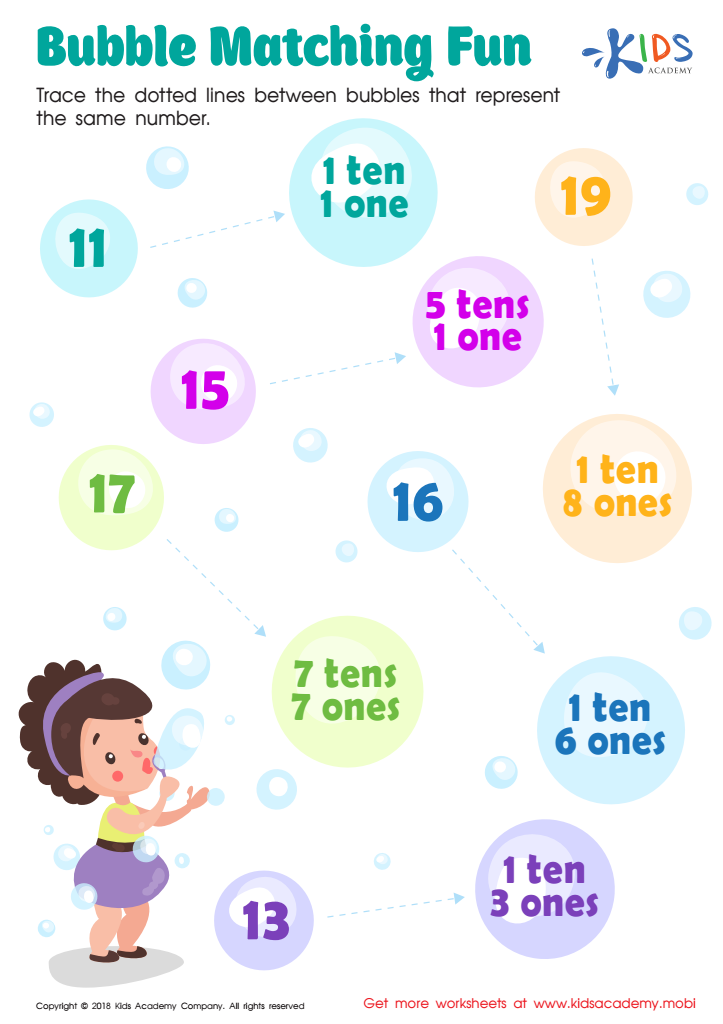

Bubble Matching Fun Worksheet
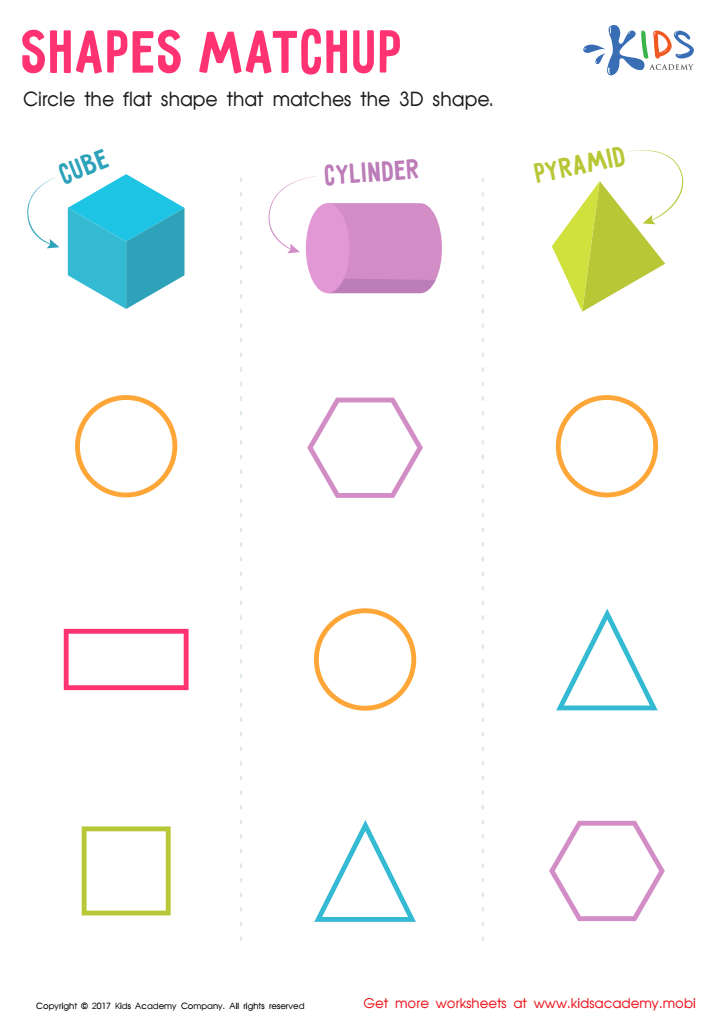

Shapes Matchup Worksheet
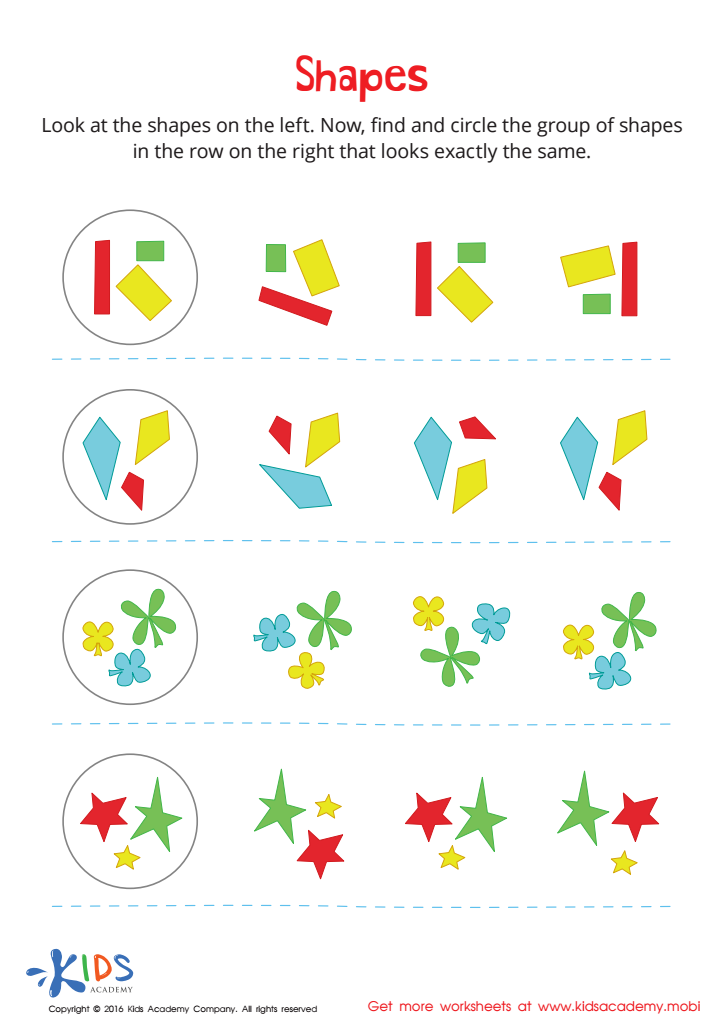

Shapes Worksheet
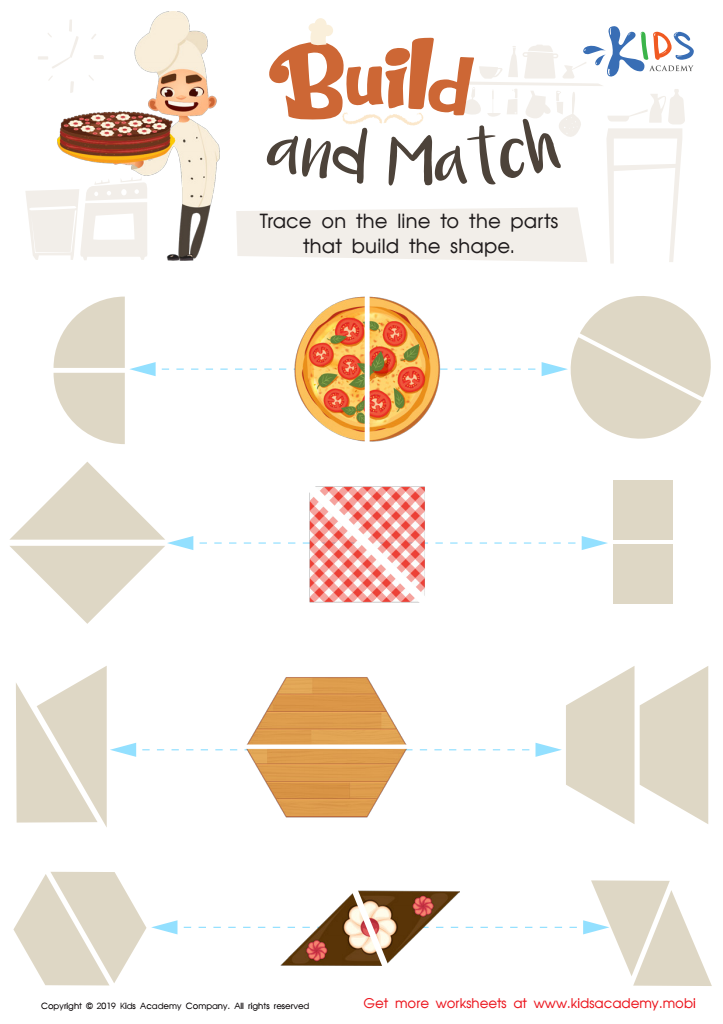

Build and Match Worksheet
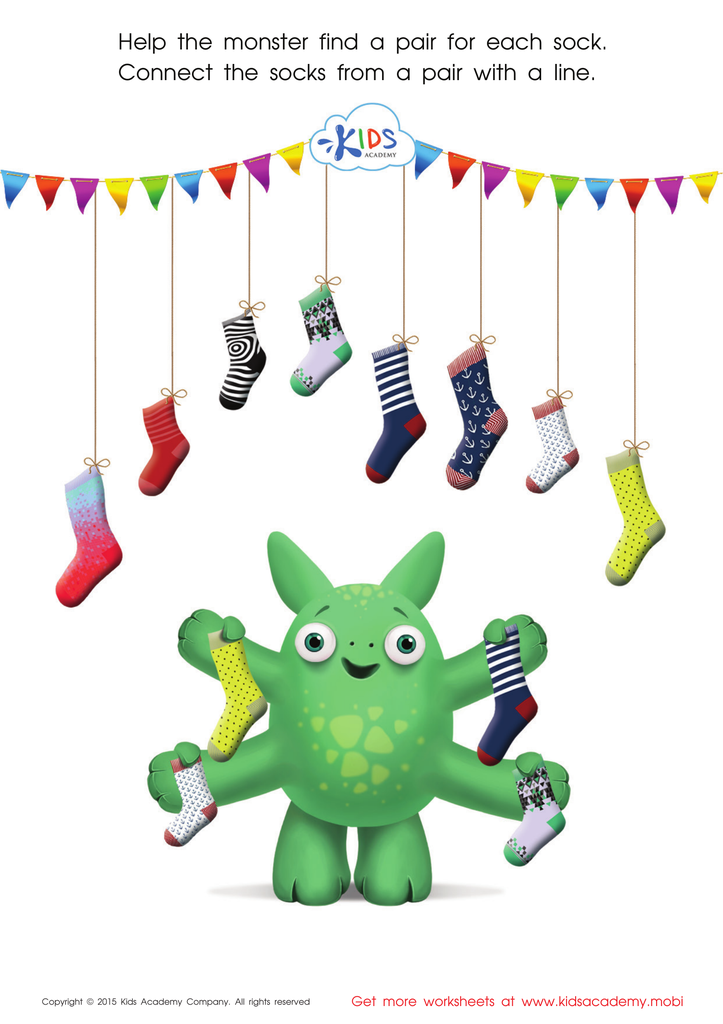

Math Matching Pairs Game: Monsterв's Socks Worksheet
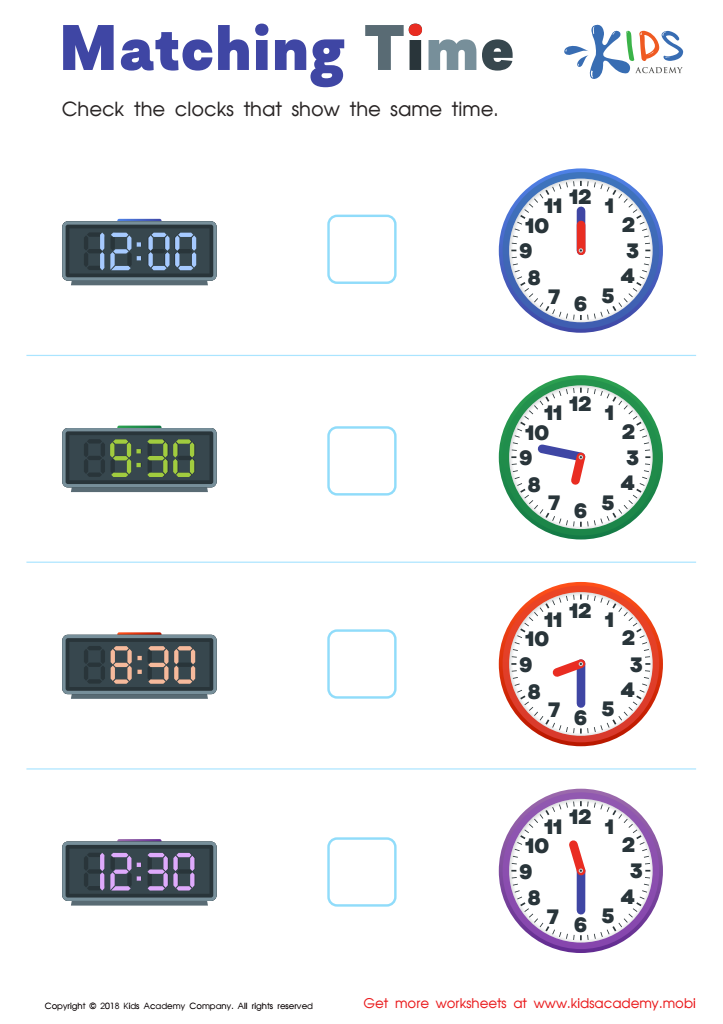

Matching Time Worksheet
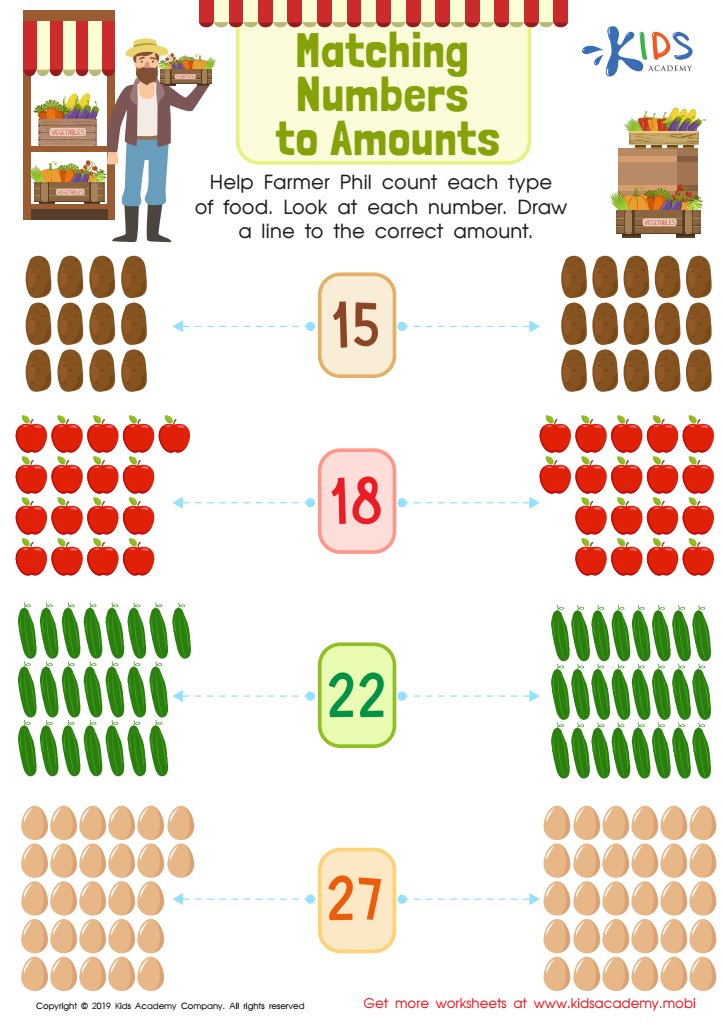

Matching Numbers to Amounts Worksheet
Parents and teachers should care about matching skills in math for children aged 4-7 because these foundational skills lay the groundwork for later mathematical understanding and problem-solving abilities. Matching involves recognizing similarities and differences, which is crucial for cognitive development. It enhances visual perceptive skills, helping children discern patterns, shapes, and numbers, thus boosting their ability to classify and categorize information.
By practicing matching, children also improve their memory and attention to detail. Matching exercises require kids to focus and recall information, which translates to better concentration in other aspects of learning. Early mastery of these skills ensures that children can grasp more complex mathematical concepts in the future, such as addition, subtraction, and eventually multiplication and division.
Moreover, matching activities are often engaging and hands-on, making learning fun and interactive. This positive early experience can foster a love for math and learning in general. For parents, engaging in these activities at home can strengthen familial bonds and actively involve them in their child's educational journey. For teachers, matching exercises can be seamlessly integrated into the curriculum, supporting diverse learning styles and enhancing classroom dynamics. In essence, prioritizing matching skills offers a strong foundation, ensuring children are equipped for academic success.
 Assign to My Students
Assign to My Students




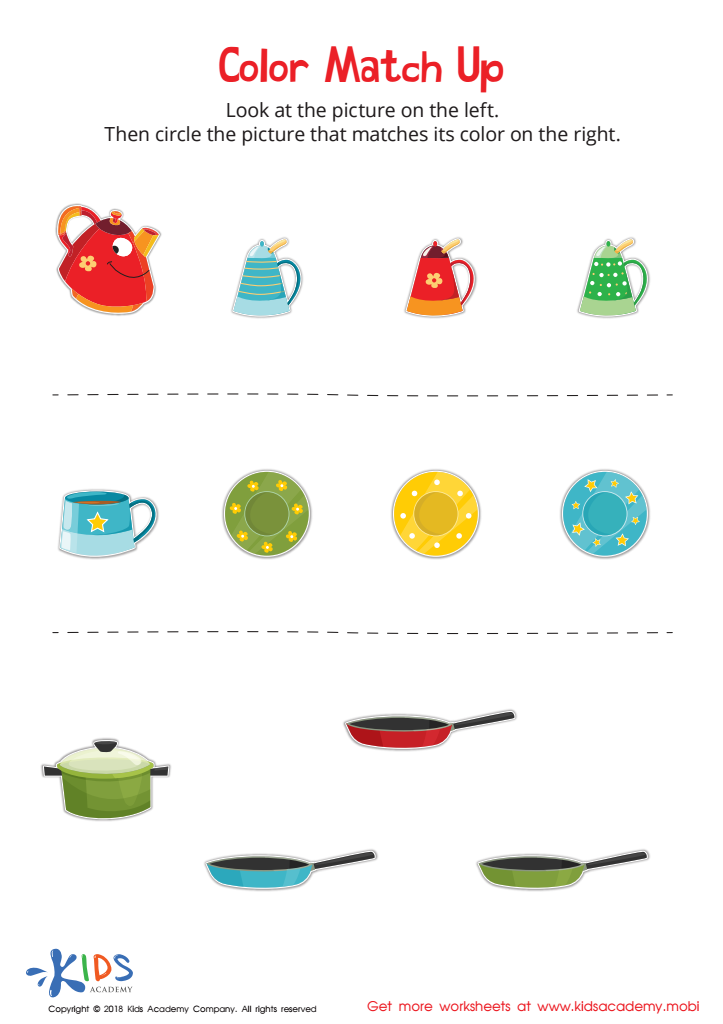

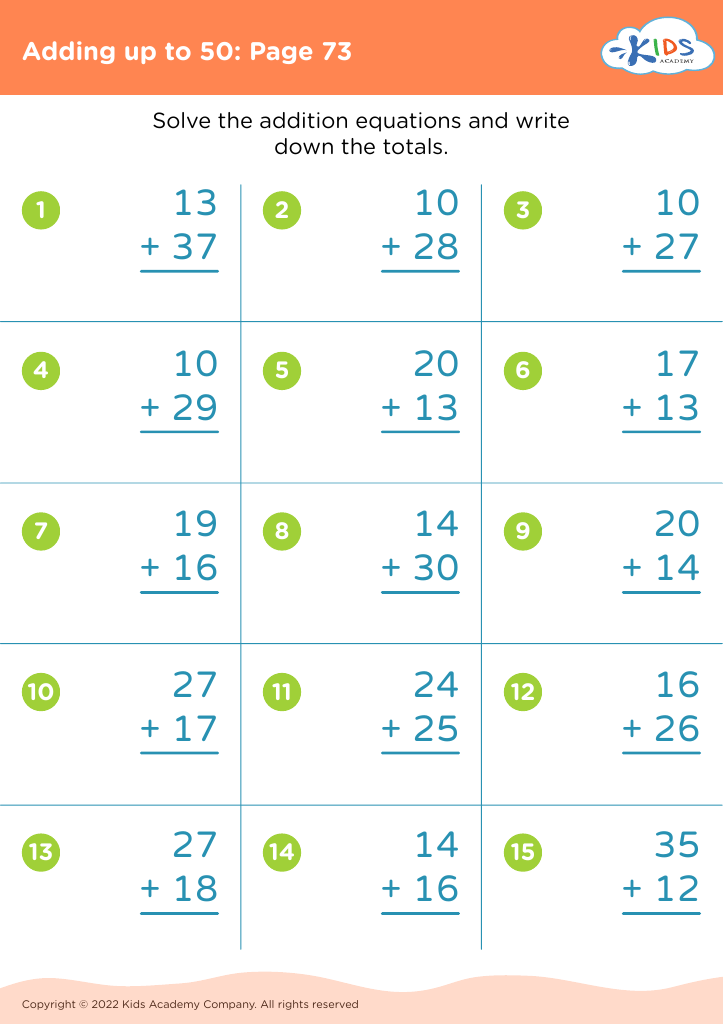







.jpg)










